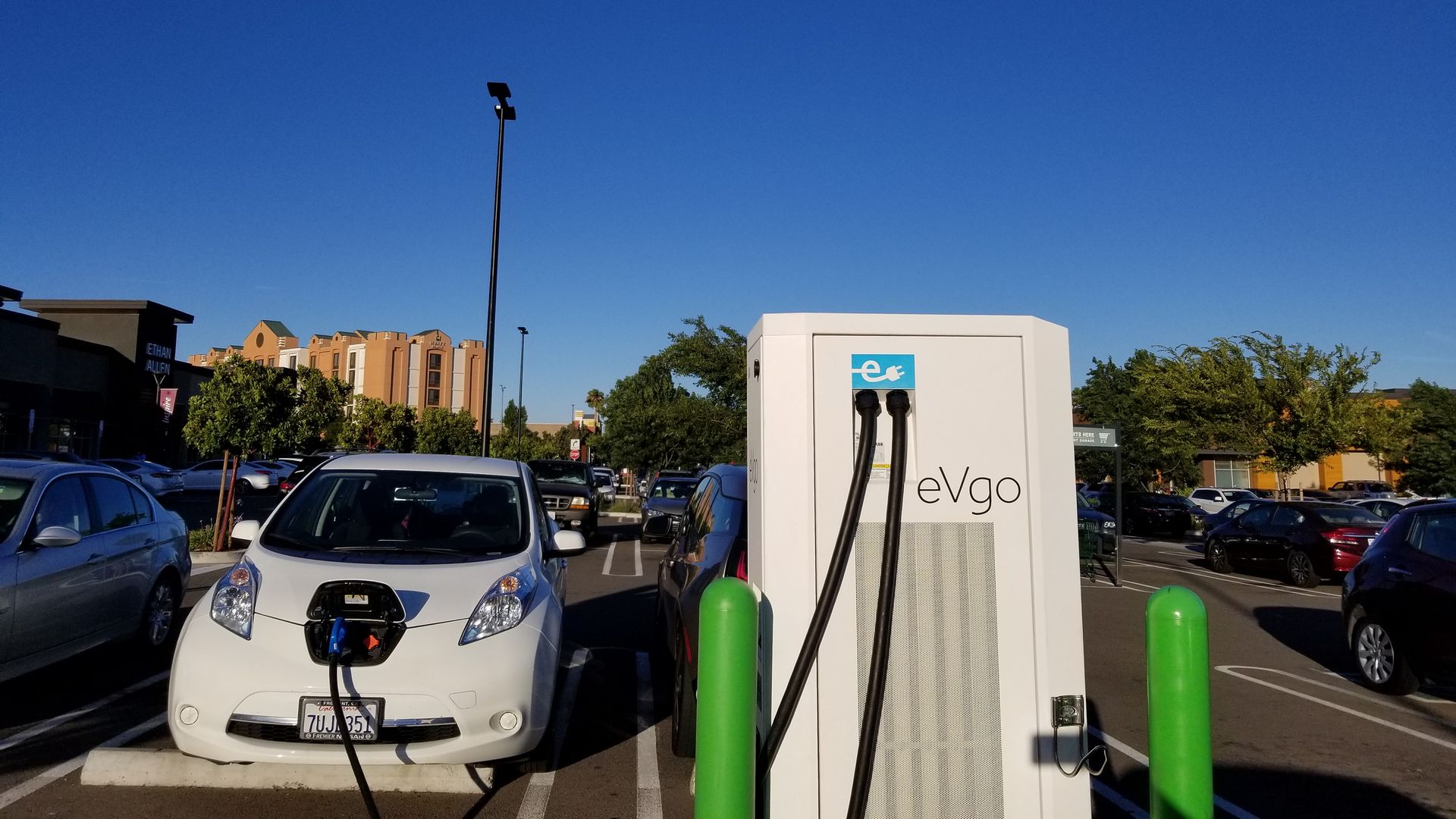Jul 9, 2018 - Energy & Climate
The U.K.'s long-term plan for electric vehicles
Add Axios as your preferred source to
see more of our stories on Google.

An electric car plugged in and charging. Photo: Smith Collection/Gado/Getty Images
Add Axios as your preferred source to
see more of our stories on Google.

An electric car plugged in and charging. Photo: Smith Collection/Gado/Getty Images